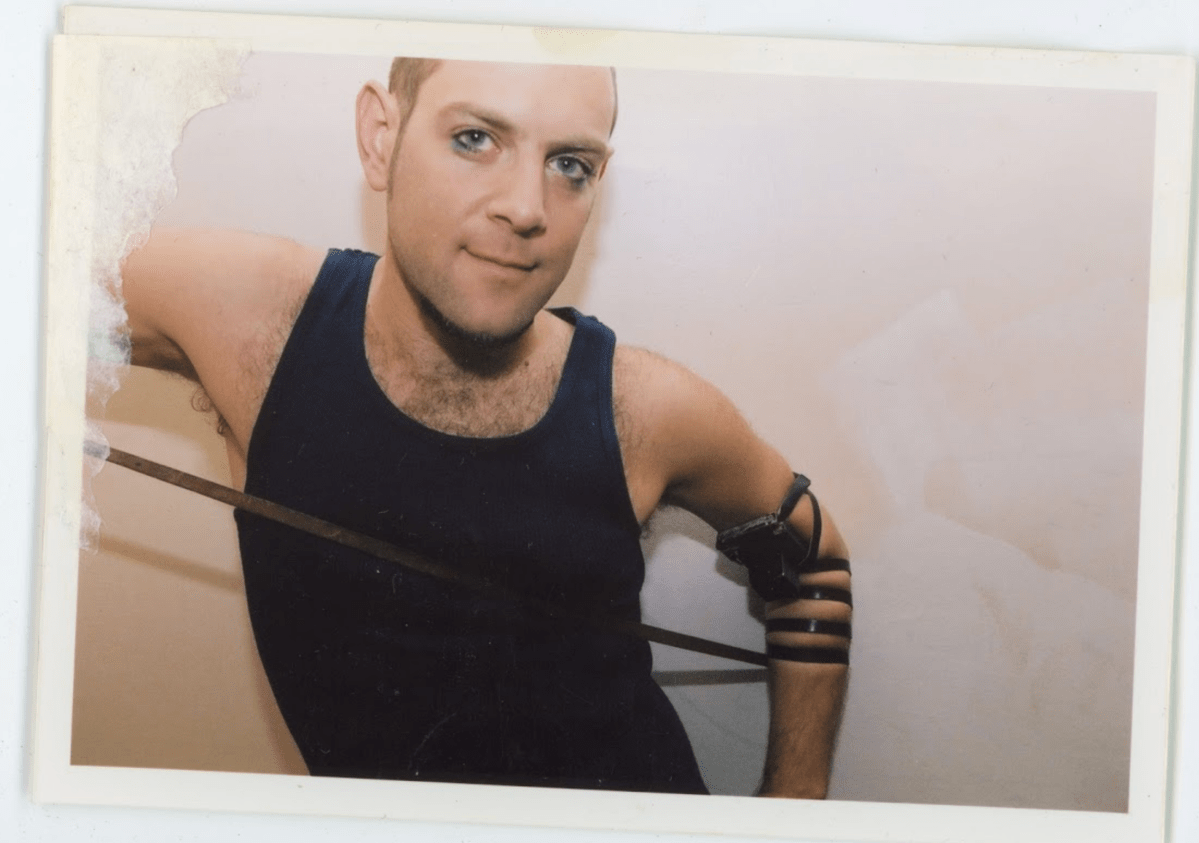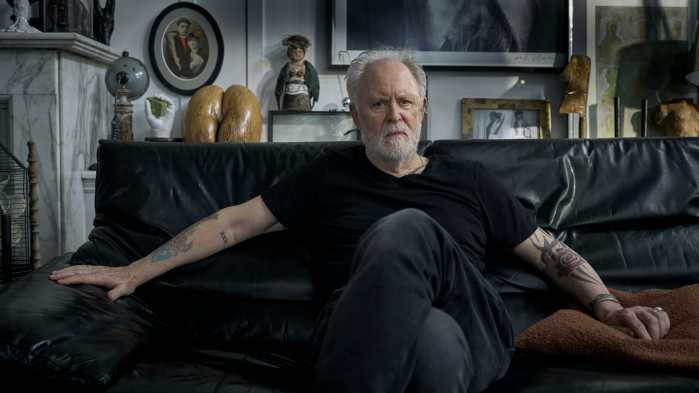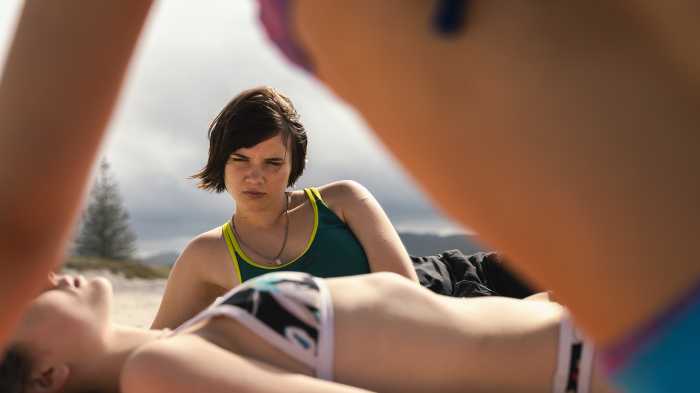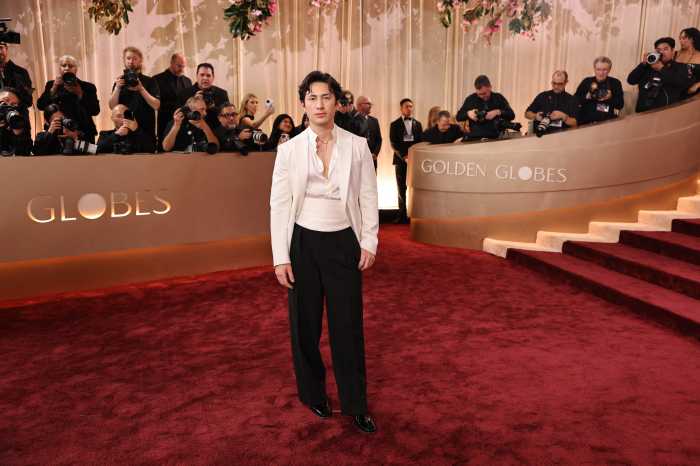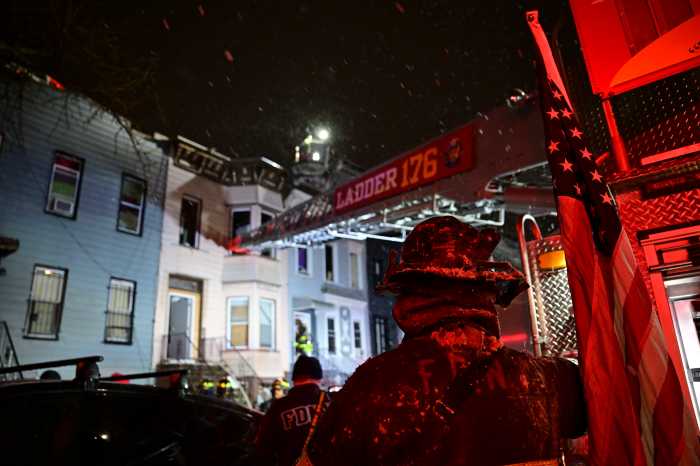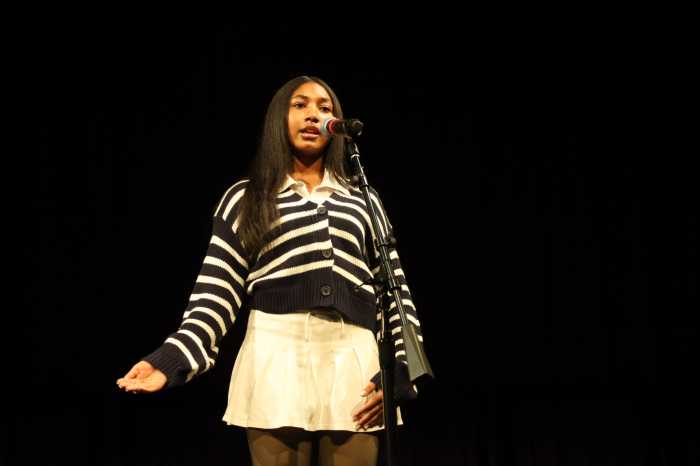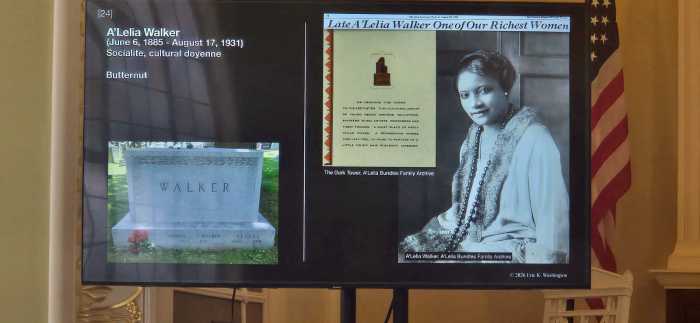“Sabbath Queen” starts with two brothers’ differences and uses them as a microcosm of conflict within the Jewish community. They were born into a family of rabbis going back 38 generations, to the 11th century. Amichai Lau-Lavie is a gay Israeli man who moved to New York in 1997, created a drag persona, and co-founded Lab/Schul, which breaks with traditional synagogues. (Its website describes it as a “God-optional experimental Jewish community.”) His brother Benny is a powerful rabbi in Israel’s Orthodox community. While Amichai dons makeup and celebrates interfaith weddings, Benny speaks to synagogues divided by gender and denounces Amichai’s rejection of tradition. Amichai’s mother mourns his gayness, based on her belief that it means the end of the family line. He relates that when he donated sperm to a lesbian couple and co-parented their son, his family suddenly became more accepting, almost viewing him as an honorary heterosexual.
The question of Jewish traditions’ contemporary meaning is the beating heart of “Sabbath Queen.” The Holocaust shattered the continuity of the Lau family. Amichai and Benny’s grandfather was sent to Treblinka by the Nazis, where he was killed. En route to Buchenwald, their father saved his life by jumping off a train in the middle of Germany. Amichai’s differences from the rest of his family were made public when he was outed by Israeli media in the early ‘90s. In New York, he became a club kid, hanging out at the Pyramid. Upon discovering the radical faerie subculture, he finally felt that he could reconcile his queerness and religious faith. The issue of interfaith relationships is a personal one for him: He relates that his most important partner was a Catholic man.
He performed as drag queen Rebbetzin Hadassah Gross, a widow who married and outlived six rabbis. (This suggests a metaphor for the legacy of his family’s long rabbinical tradition.) He speaks about her persona as though she’s a spirit possessing him with divine feminine energy. In character, he advocates for the idea that we’re all part male and female, rebelling against the men shouting at women who want to pray at the Wailing Wall. During “Sabbath Queen,” he says Lab/Shul was born out of the notion that the arts could inform and enhance a synagogue.
“Sabbath Queen” reflects the two different interpretations of Judaism represented by Amichai and his brother through its editing. His drag shows and appearance at political protests are juxtaposed with YouTube clips from conservative rabbis. Not till very late in the film are he and Benny shown in the same room together. Although DuBowski deploys animation occasionally, he had access to Amichai’s home videos going back to the ‘90s. A clip from New York’s cable TV show “Gay USA” turns up.
An hour in, “Sabbath Queen” takes a turn which leads it to become a better, more complicated film. Up to that point, it comes across as a simple celebration of Amichai as a rebel against a narrow-minded version of Judaism that despises interfaith marriages and reinforces sexist and homophobic attitudes. Then, Amichai decides to enter the Jewish Theological Seminary, a Conservative institution, to become a rabbi. He rejects the option of studying under Reform Judaism because he doesn’t think the right-wingers he wants to influence would take him seriously. But his stated goal of changing the system from within leads to compromises. His relationship with DuBowski turns testy – he’s shown refusing to keep talking on camera and walking out of an interview. As a Conservative rabbi, he can no longer officiate interfaith weddings, creating great conflict with Lab/Shul’s board members. The film’s biggest drama arrives when he does so anyway.
21 years in the making, “Sabbath Queen” gives a face to radical changes within Amichai’s life. (DuBowski first met him when working on his documentary “Trembling Before G-D,” which profiled queer Hassidic and Orthodox Jews.) There’s the material for a novel-length saga about the Lau family. Yet the film also offers an intimate look at Amichai figuring his positions out in the moment. As long as “Sabbath Queen” was in production, Amichai and the director figured they finally needed to end it when the Oct. 7 massacre occurred last year. After so much struggle regarding how to embody a fluid form of Judaism, Amichai arrives at the conclusion “I stand with my family’s pain, and it doesn’t justify the suffering of Gaza.”
“Sabbath Queen” | Directed by Sandi DuBowski | Roco Films | In English and Hebrew and Yiddish with English subtitles | Opens Nov. 22nd at the IFC Center

